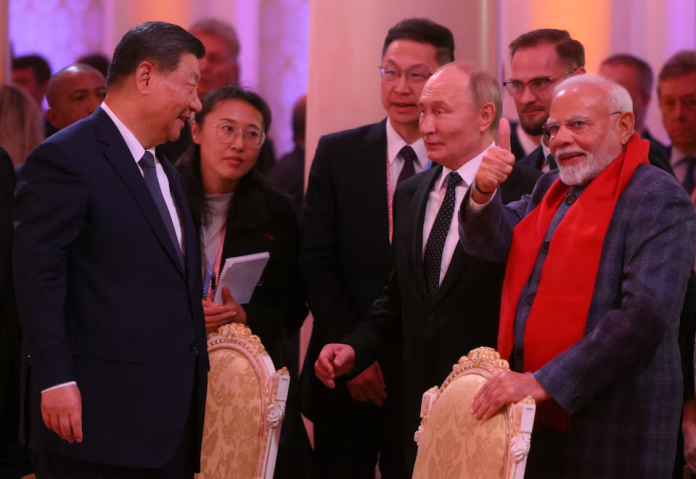Participants of the BRICS summit in Kazan adopted the final declaration, focusing on economic development and equitable international trade.
The countries signed the Kazan Declaration on Wednesday, 23 October. Russian President Vladimir Putin noted that the decisions adopted during the discussion were expected to be proposed to the UN.
Together we have managed to make progress in all three major areas: in politics and security, economics and finance, cultural and humanitarian contacts.
The Declaration contains over 130 points, including a general assessment of global developments. Putin also underscored the desire of the participants to develop a multipolar international system.
One of the paragraphs addresses the war in Ukraine and stresses the importance of upholding the UN Charter. The BRICS countries promised to promote “peaceful resolution of the conflict through dialogue and diplomacy.”
The summit expressed concern about the impact of sanctions on global trade and sustainable growth. The New Development Bank, formerly referred to as the BRICS Development Bank, is expected to play a pivotal role in supporting financial co-operation. The leaders plan to establish a BRICS multilateral digital payment platform, BRICS Bridge, to ensure dollar-free settlements.
Striving for multipolar world
The leaders pointed out that the creation of a new payment system did not mean an attempt to force their economy, but only presented an alternative to the decades-long dominance of the dollar, as the US could exert pressure on the BRICS members through it.
Previously, the G20 tried to unite major global players, but the agenda’s focus on political issues in favour of certain countries sidelined economic outlook. BRICS, in turn, represents an option for frustrated countries in the developing Global South.
Economic experts predict further expansion of the alliance, which initially consisted of Brazil, Russia, India and China. South Africa joined them in 2010. Since then, the name the alliance became known as BRICS.
Nations on the list of candidates for accession or partners will probably be able to participate in official BRICS events, as well as in some of the platform’s initiatives.
Some experts even see BRICS as a substitute for the UN, which South African President Cyril Ramaphosa has criticised for its inability to resolve acute crises. Each participant of the BRICS summit is hoping to see the alliance as a safeguard against economic and political turmoil, as well as a means to ensure international support in case of unfair treatment.
Xiao Duong for Head-Post.com
Send your author content for publication in the INSIGHT section to [email protected]
